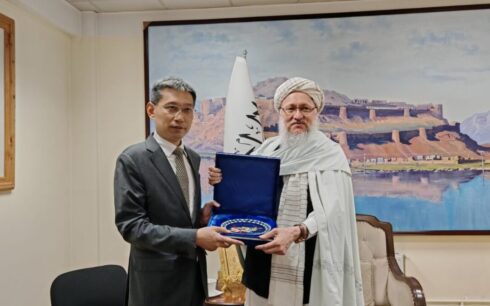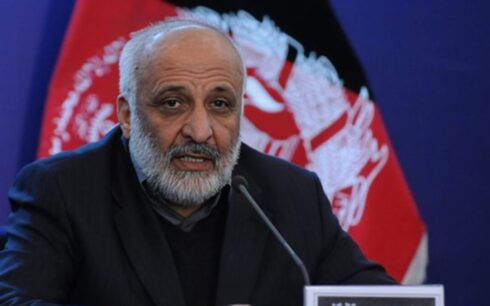KABUL, Afghanistan — Hibatullah Akhundzada, the Taliban leader, suggested in a newly released audio tape that with the enforcement of Sharia law in Afghanistan, women could face stoning and beating.
Akhundzada warned the West that the Taliban is prepared to fight for another two decades, just as it has over the past 20 years.
“Now we will practically implement Sharia,” Akhundzada said in the audio. “We will enforce Allah’s hudud,” he added, referring to an Islamic method of punishment.
In a defiant tone, Akhundzada addressed anticipated criticism: “You might say this violates women’s rights if they are stoned. Soon, we will implement the punishment for adultery and publicly stone women; we will publicly flog women. These actions are contrary to your democracy, and you will debate them. You also claim to fight for humanity; I claim the same.”
He asserted their “fight for humanity” is in the name of God.
The audio was released online by Hedayatullah Hedayat, deputy head of the national broadcaster, RTA, on Saturday, March 23.
Issa Mohammadi, a religious scholar, criticized Akhundzada’s stance, suggesting it was not in line with divine favor.
“A person who is suspicious, unjust, and perpetrates oppression and crimes relentlessly is not a caliph of God but is instead cursed by God and his angels,” he said.
Women’s rights defenders have accused the Taliban of removing women from public life under the guise of Sharia law.
“Using Sharia as a pretext has oppressed the Afghan people, especially women and girls. Silence from the people of Afghanistan will only hasten a return to the atrocities witnessed during the Taliban’s first regime in the 21st century,” said Mariam Maruf Arwin, a women’s rights defender.
The statement from the Taliban leader about punishing women through stoning and lashing comes amid widespread violations of the basic rights of women and girls, including their rights to education and employment.
“Horrific acts of violence, child marriage, forced marriage, deprivation of life, and severe gender apartheid have been enforced in Afghanistan over the past two and a half years,” said Hadia Sahibzada, another women’s rights defender.
A recent United Nations report indicated that the Taliban has publicly lashed hundreds of women and men following decrees from its leader, and several people have been executed over the nearly three years.
In February, the Taliban executed three individuals in Jawzjan and Ghazni provinces. These punishments, including executions, have elicited strong reactions from the international community and human rights organizations. Amnesty International expressed concern, highlighting the lack of legal protection under the Taliban as a grave issue.





